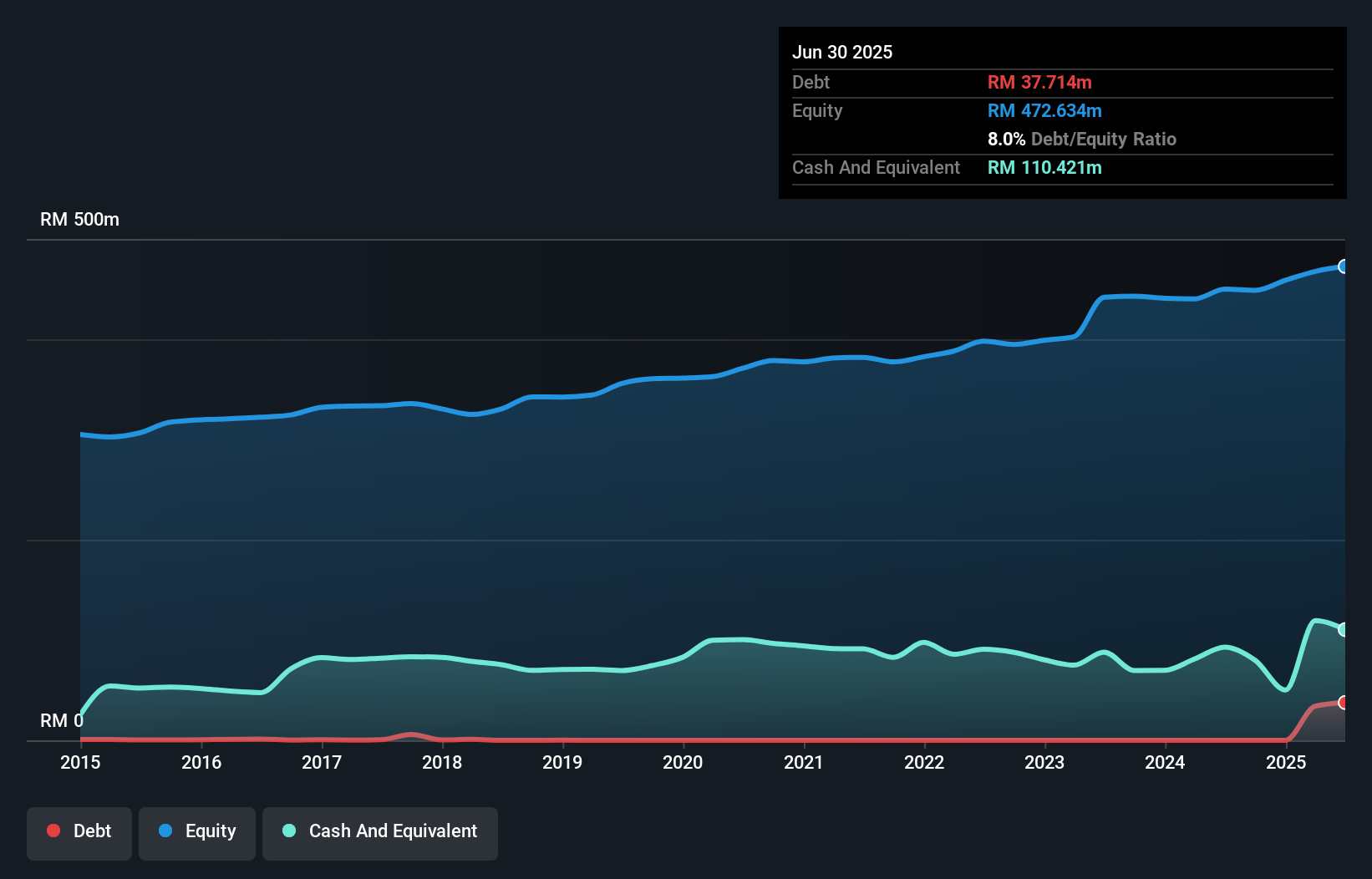- Malaysia
- /
- Real Estate
- /
- KLSE:MUIPROP
These 4 Measures Indicate That MUI Properties Berhad (KLSE:MUIPROP) Is Using Debt Reasonably Well
Legendary fund manager Li Lu (who Charlie Munger backed) once said, 'The biggest investment risk is not the volatility of prices, but whether you will suffer a permanent loss of capital.' So it might be obvious that you need to consider debt, when you think about how risky any given stock is, because too much debt can sink a company. We can see that MUI Properties Berhad (KLSE:MUIPROP) does use debt in its business. But should shareholders be worried about its use of debt?
When Is Debt A Problem?
Debt and other liabilities become risky for a business when it cannot easily fulfill those obligations, either with free cash flow or by raising capital at an attractive price. Ultimately, if the company can't fulfill its legal obligations to repay debt, shareholders could walk away with nothing. However, a more usual (but still expensive) situation is where a company must dilute shareholders at a cheap share price simply to get debt under control. Of course, the upside of debt is that it often represents cheap capital, especially when it replaces dilution in a company with the ability to reinvest at high rates of return. The first step when considering a company's debt levels is to consider its cash and debt together.
What Is MUI Properties Berhad's Debt?
You can click the graphic below for the historical numbers, but it shows that as of June 2025 MUI Properties Berhad had RM37.7m of debt, an increase on none, over one year. However, its balance sheet shows it holds RM110.4m in cash, so it actually has RM72.7m net cash.

A Look At MUI Properties Berhad's Liabilities
We can see from the most recent balance sheet that MUI Properties Berhad had liabilities of RM161.5m falling due within a year, and liabilities of RM15.0m due beyond that. On the other hand, it had cash of RM110.4m and RM81.6m worth of receivables due within a year. So it can boast RM15.6m more liquid assets than total liabilities.
This surplus suggests that MUI Properties Berhad has a conservative balance sheet, and could probably eliminate its debt without much difficulty. Succinctly put, MUI Properties Berhad boasts net cash, so it's fair to say it does not have a heavy debt load!
View our latest analysis for MUI Properties Berhad
It was also good to see that despite losing money on the EBIT line last year, MUI Properties Berhad turned things around in the last 12 months, delivering and EBIT of RM50m. When analysing debt levels, the balance sheet is the obvious place to start. But you can't view debt in total isolation; since MUI Properties Berhad will need earnings to service that debt. So when considering debt, it's definitely worth looking at the earnings trend. Click here for an interactive snapshot.
Finally, a business needs free cash flow to pay off debt; accounting profits just don't cut it. MUI Properties Berhad may have net cash on the balance sheet, but it is still interesting to look at how well the business converts its earnings before interest and tax (EBIT) to free cash flow, because that will influence both its need for, and its capacity to manage debt. Over the last year, MUI Properties Berhad saw substantial negative free cash flow, in total. While investors are no doubt expecting a reversal of that situation in due course, it clearly does mean its use of debt is more risky.
Summing Up
While it is always sensible to investigate a company's debt, in this case MUI Properties Berhad has RM72.7m in net cash and a decent-looking balance sheet. So we don't have any problem with MUI Properties Berhad's use of debt. The balance sheet is clearly the area to focus on when you are analysing debt. But ultimately, every company can contain risks that exist outside of the balance sheet. These risks can be hard to spot. Every company has them, and we've spotted 4 warning signs for MUI Properties Berhad (of which 1 can't be ignored!) you should know about.
At the end of the day, it's often better to focus on companies that are free from net debt. You can access our special list of such companies (all with a track record of profit growth). It's free.
New: Manage All Your Stock Portfolios in One Place
We've created the ultimate portfolio companion for stock investors, and it's free.
• Connect an unlimited number of Portfolios and see your total in one currency
• Be alerted to new Warning Signs or Risks via email or mobile
• Track the Fair Value of your stocks
Have feedback on this article? Concerned about the content? Get in touch with us directly. Alternatively, email editorial-team (at) simplywallst.com.
This article by Simply Wall St is general in nature. We provide commentary based on historical data and analyst forecasts only using an unbiased methodology and our articles are not intended to be financial advice. It does not constitute a recommendation to buy or sell any stock, and does not take account of your objectives, or your financial situation. We aim to bring you long-term focused analysis driven by fundamental data. Note that our analysis may not factor in the latest price-sensitive company announcements or qualitative material. Simply Wall St has no position in any stocks mentioned.
About KLSE:MUIPROP
MUI Properties Berhad
An investment holding company, engages in property investment and development business in Malaysia.
Moderate risk with adequate balance sheet.
Market Insights
Community Narratives



